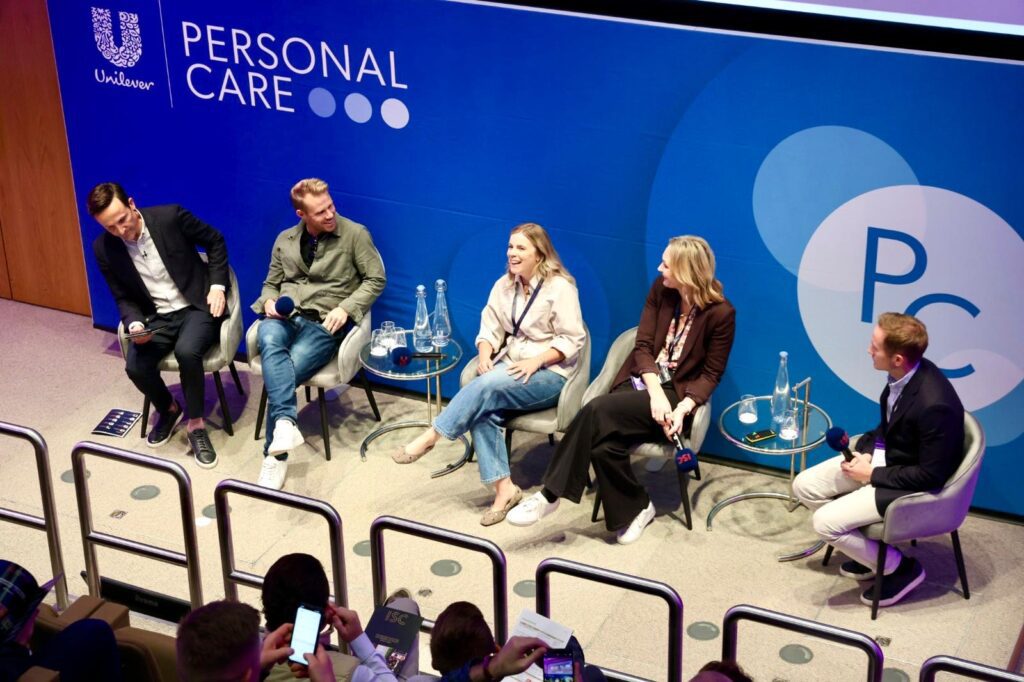Emily Heath, Global Brand Director, Rexona/Sure – Unilever
John Roger, Head of Global Partnerships – Chelsea Football Club
Mel Brown, Director – Two Circles
Sam Shave, Managing Partner – Think Beyond
Brand purpose has been a core talking point in the sports sponsorship sector for over a decade.
Yet using it as a principle to drive tangible returns, rather than a comforting buzzword, still requires careful work and attention.
At a brand like Unilever, said Rexona/Sure Global Brand Director Emily Heath, “purpose” must be “connected to everything we’re doing”. Those sentiments were echoed by Sam Shave, Managing Partner at Think Beyond, who argued that brand purpose, community good and commercial returns ought to be connected through “shared value”.
Too many partnerships, he added, had become box-checking exercises, with brands and rights holders allowing terms like purpose and ‘authenticity’ to lose their meaning. Purpose should inform campaigns and activations from the outset, with deep relevance to a brand’s wider activities.
Two Circles’ Mel Brown gave the example of Nike’s recent renewal with the Women’s Soccer League in how brands can deliver meaningful benefits that align with their own purpose. Where WSL players without endorsement deals previously had to buy their own boots, the terms of the new partnership stipulate that Nike will provide them instead.
The next element of the brand purpose challenge lies in bringing product and purpose stories together to maximum effect. Sometimes that can be enabled by existing promotional structures. Rexona, Heath noted, has long based its consumer offer on deodorant products that “won’t let you down”. In sport, that ties creatively to the performance of star players on the field, and to Rexona’s dependability as a community partner in sports like football.
In other cases, making room for purpose can generate commercial potential. Shave gave the example of how Liverpool’s sustainability strategy, The Red Way, opened a space for mower manufacturer Husqvarna to come in as a sponsor on a shared message of environmental and nature responsibility – a deal that would not have happened beforehand.
For sponsors, staying attuned to the possibilities of purpose can also come with a financial incentive. Two Circles analysis has indicated that women’s football will be a top five global sport by the end of the decade. For existing sponsors of the sport who have supported its growth to date, that could yield some meaningful returns. Those outside the space may find the cost of entry has risen considerably by 2030.
At Chelsea, purpose is derived from the perspectives of its fanbase and charitable foundation. Head of global partnerships John Roger revealed how the club had discussed open briefs for community involvement with its brand partners, bringing supporter groups into the process early to ensure important needs are met. That, he said, had led incoming partner Cadbury’s to provide British Sign Language interpreters for fans at every home game.
Meanwhile, Chelsea players are actively involved in those activities through personal appearances and – more importantly – a willingness to bring their own stories and experiences into play.
As individual athletes capture so much attention within the modern media ecosystem, added Brown, their role will only become more significant in that respect. On the other hand, the downside risks of getting this kind of personal engagement wrong makes it even more crucial for athlete communication to come from a place of genuine interest.
With economic conditions reordering brand priorities, it may be time to restate the case for purpose-led activities. But the panel agreed that rethinking how those activities are measured – and showing where they deliver tangible value – will also be key to making that argument.

